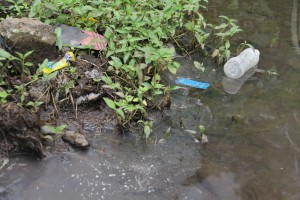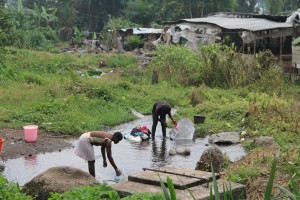Today is World Water Day. A perfect time to stress, once more, the importance of water and efficient water management.
Did you know that:
- 70% of the human body is composed of water
- About 70% of the earth is covered by water, hence the nickname ‘Blue Planet’.
- But only 2.5% of global water is fresh water and 99% of that water is locked up in glaciers or deep underground!
If we combine the limited number of fresh water resources on one hand, and the population growth on the other, we can easily understand the challenges the world is facing in terms of water distribution and access to safe and clean water for every human being.
Worldwide water challenge
Because of this worldwide challenge, the United Nations launched the “Water for life” decade (2005-2015). The objective of that decade is to “focus attention on action-oriented activities and policies that ensure the long-term sustainable management of water resources, in terms of both quantity and quality, and include measures to improve sanitation”. (UN – Water for life decade)
Water scarcity is also at the heart of the Millennium Development Goal 7 that calls on the world to work to “halve, by 2015, the proportion of the population without sustainable access to safe drinking water and basic sanitation.” (UN – Water for life decade)
Access to water is a right
Kofi Annan once said “Access to safe water is a fundamental human need and therefore a basic human right”. In July 2010, the United Nations declared safe and clean drinking water and sanitation a human right. And that right to water places certain responsibilities upon governments to ensure that people can enjoy sufficient, safe, accessible and affordable water, without discrimination.
But it’s not only the government’s responsibility to protect water resources. Every citizen, all over the globe, must be a part of the change by adopting a respectful & responsible behavior towards water protection and water consumption.
 Protect the catchment areas of Buea.
Protect the catchment areas of Buea.
Green Cameroon has been on a field trip to 4 different catchment areas of Buea, under the supervision of Ndumbe Ekema, Director of Wewuley Consultancy. And change is needed here! The area surrounding the catchment areas must be respected and protected. Human activities, such as farming and agriculture, in these areas reduce the water table considerably. Some water sources in Buea have already dried up and the level of the water table is constantly reducing.
A few things YOU can do to manage water better:
- Close all taps when not in use: leaving a tap open could waste up to 8 liters of water in 2 minutes!
- Report or fix leaking pipes: all the water that is leaking, is water you will not be able to use. Report the leak to the responsible services, or fix leaks that are simple to fix.
- Reuse water: the water that you use to wash your clothes or yourself can be used afterwards to flush the toilet for example.
- Harvesting rainwater: collect rainwater when it rains, then cover it up. It’s a free source of water you can use to clean your house or flush your toilet.
- Do not drink dirty water! Dirty water contains a high concentration of bacteria that can be a direct threat to your health: Diarrhea is the second cause of infant mortality in the developing countries, but it also causes other diseases such as cholera.
And do not forget, water is your right, so fight for it!
Learn more about water management in Cameroon during our Green Week: on Tuesday, the 9th of April 2013 as of 1pm, at French Cultural Center (Alliance Franco-Camerounaise) in Clarks Quarters, Buea Town, we will have an entire day on water, with experts, exhibitions and a film projection.
Citizens of Buea, be part of the change!


